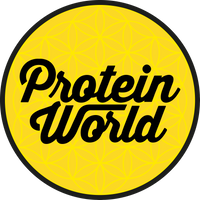WHAT IS PROTEIN & WHAT DOES PROTEIN DO?

Packing in the protein is a priority for many, with loads of us downing a post-workout protein shake, snacking on a protein bar during the day and ensuring our meals are full of the stuff.
But, why? What does protein do? Do you actually know the importance of this essential macronutrient and what is does to the body?
Well, we’re about to tell you! Here’s the lowdown on what protein does and why it’s worth ensuring you get your recommended daily allowance.
WHAT IS PROTEIN?
Put simply, proteins are large, complex molecules. They play a variety of important roles in the body, including the structure, function, and regulation of the body’s organs and tissues.
Made up of thousands of smaller units, also known as amino acids, proteins are attached to one another in long chains.
There are 20 different types of amino acids – these can be combined to make a protein. The combination of amino acids determines each proteins specific function and benefit to the body.
WHAT DOES PROTEIN DO?
The main benefit of protein is the impact it has on your body’s growth and maintenance. For example, if you’re actively trying to build muscle, protein is essential, as it will help maintain your muscle mass, while also helping to repair muscle. Protein is also extremely helpful to help speed up reaching your weight loss goals as it keeps you full for longer as it takes a longer time to digest and move through your gut.
Aside from growth and maintenance, there are countless other benefits of protein including transporting and storing nutrients around the body, keeping you feeling fuller for longer, and also boosting the immune system.
HOW MUCH PROTEIN DO I NEED?
As per scientific research, It’s recommended that adults consume 0.8g of protein per kg of body weight, or 0.36g per pound*. So, put simply, this equates to approximately 56g for the average sedentary man and 46g for the average sedentary woman per day.
If you’re considered highly active and hitting the weights in a bid to build and maintain muscle mass, then you can afford to consume slightly more protein than this advises.
Although there is no definitive number on how much protein you should eat, at Protein World we always recommend anywhere between 1.2g-1.5g of protein per kg of body weight for anyone who is active, trying to lose weight or a regular gym goer.
WHAT FOODS ARE HIGH IN PROTEIN?
If you're scrolling through the Protein World website wondering what products can help you hit your protein goals, you've come to the right place!
The majority of our shakes, snacks and bars are PACKED with high volumes of either whey based or plant based protein!!!
Here is a list of our favourites:
Whey Protein Concentrate - Over 30g of Protein Per Serving
Slender Blend - Over 23g of Protein Per Serving
Slender Pancakes - Over 10g of Protein Per Serving
Slender Porridge - Over 12g of Protein Per Serving
Slender Mug Cake - Over 7g of Protein Per Serving
Vegan Blend - Over 23g of Plant Protein Per Serving
Other brilliant protein sources that we would recommend include: Eggs, Chicken Breast, Peanuts, Beans and Legumes.
WHAT HAPPENS IF YOU EAT TOO MUCH PROTEIN?
As you know, you can have too much of a good thing and protein is no exception.
Consuming too much protein can lead to a number of health complications, from weight gain, diarrhoea, dehydration and even kidney damage, in extreme cases.




